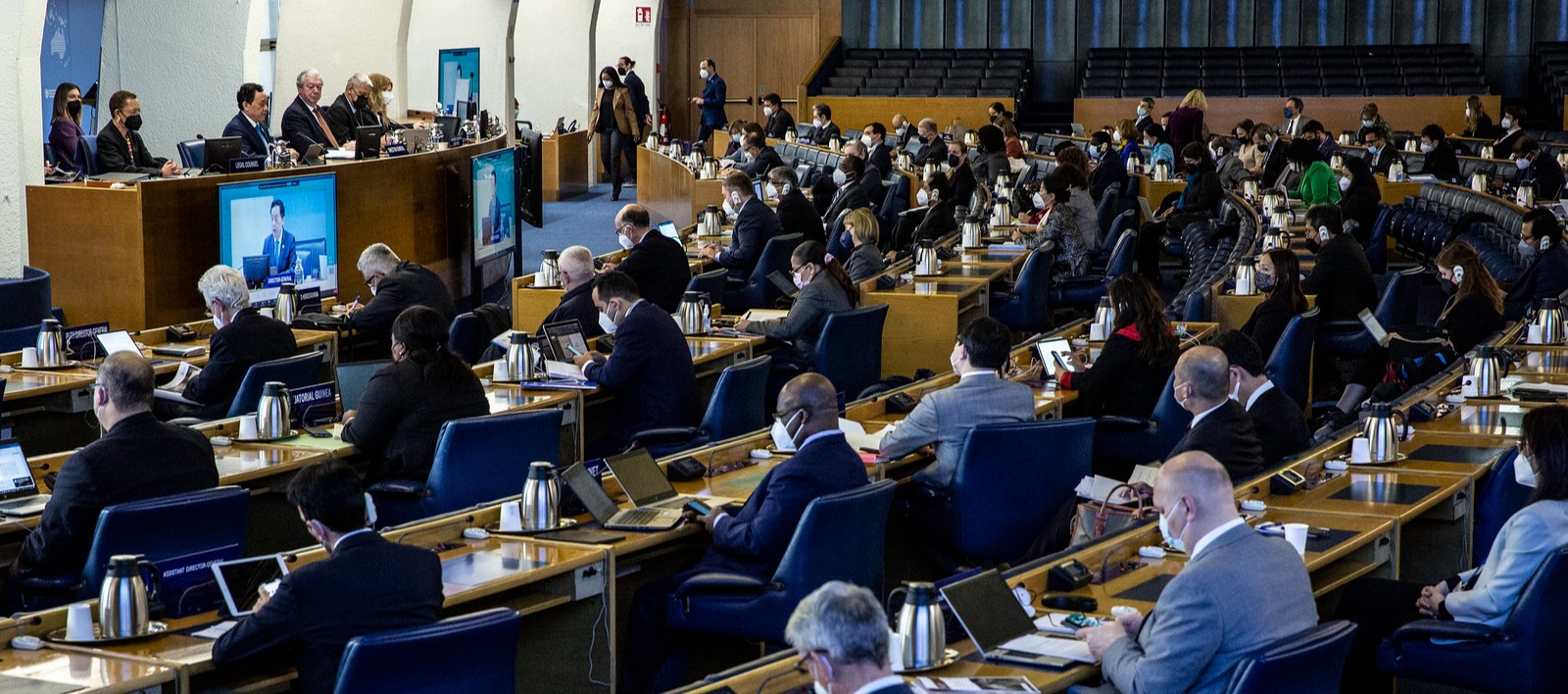Ukraine crisis: the world can still contain the impact on global food security with the right policies, FAO Director-General says
QU Dongyu addresses FAO Members as they convene to discuss the impact of the conflict on global food supply

FAO Director-General QU Dongyu addresses 169th Council of FAO members
©FAO/ Alessandra Benedetti
Rome - The war in Ukraine will impact consumers across the world as the resulting increases in the price of food, energy and fertilizers put the next global harvests at risk, the Director-General of the Food and Agriculture Organization of the United Nations (FAO), QU Dongyu, warned today.
A global food crisis of the scale seen in 2008 can, however, still be averted, Qu said.
In an address to the 169th session of FAO's Council, convened to discuss the consequences of the war in Ukraine on global food security, Qu emphasized the importance of keeping global supply chains functioning and highlighted FAO's work on the ground.
The meeting was held as food prices posted a 12.6 percent rise from February, reaching a new all-time high in March, with cereals and vegetable oils prices surging, according to FAO’s latest Food Price Index.
"Prices for staple foodstuffs such as wheat and vegetable oils have been soaring lately, imposing extraordinary costs on global consumers, particularly the poorest," Qu said. And with energy prices rising in parallel with food prices, "the purchasing power of vulnerable consumers and countries has further decreased," Qu said.
Today's high fertilizer prices, meanwhile, could lead to lower fertilizer use next season and possibly beyond, with the real prospect of a drop in food productivity leading to even higher food prices.
"This would potentially result in even more undernourished people in 2022 and months to come," Qu warned.
Supply disruptions
Russia and Ukraine together account for nearly 30 percent of global wheat exports and about 80 percent of global sunflower exports. Russia is the largest exporter of fertilizers.
This means that supply disruptions in these two countries will be felt across global agrifood systems, the Director-General warned.
While the supply situation on global food markets is tight and there are reasons for concern, there is also evidence that the current problems can be contained, and that a global food crisis like the one seen in 2008 can be averted, Qu said.
That will depend on avoiding a repeat of the mistakes made in 2008, when "counter-productive policies" on trade were imposed.
“The major difference from 2008 is that today we are facing the big risk that our planting season for next year will be drastically affected - in 2008 the shock was due to a drought and did not put at risk the next planting season,” Qu said.
"We must not shut down our global trade system, and exports should not be restricted or taxed.”
Additional concrete proposals by FAO include:
- Fast implementation of detail soil maps, supporting the most vulnerable countries to use their fertilizers efficiently
- Efficient and well-targeted social protection plans
- Improvement of biosecurity measures in Ukraine’s neighbouring countries to minimize the spread of African Swine Fever and other animal diseases
- Strengthened market transparency and policy dialogue to minimize disruptions, ensure continued functioning, and the smooth flow of trade in food and agricultural products
FAO's work on the ground
FAO has stepped up its efforts significantly since the outbreak of the Ukrainian conflict, reinforcing its team on the ground and publishing a series of crucial data.
Preliminary information points to a worsening trend in food security, especially in areas with active ongoing fighting and with the highest numbers of displaced people (up to 15 percent of the total population). Some 20 percent of households lack cash to meet their basic food needs, with destocking of small farm animals, and in some cases large ruminants. In terms of agricultural production, data indicates limited availability of critical agricultural inputs, including seeds, fertilizers, pesticides, equipment, fuel, and livestock supplies, arising from a combination of logistic and financial issues.
An updated Rapid Response Plan for May-December 2022, with a funding request of 115 million dollars, is focusing on maintaining food production, supporting agrifood supply chains, and coordinating the Food Security and Livelihoods Cluster, in particular through continued assessments of food security, markets and value chains.
"Let us work together today in an efficient, coherent and technical manner to ensure better production, better nutrition, a better environment and a better life for all, leaving no one behind – now, more than ever," Qu said.
More details on today's Council session can be found here
Contact
FAO News and Media (+39) 06 570 53625 [email protected]
Nicholas Rigillo FAO News and Media (Rome) [email protected]
